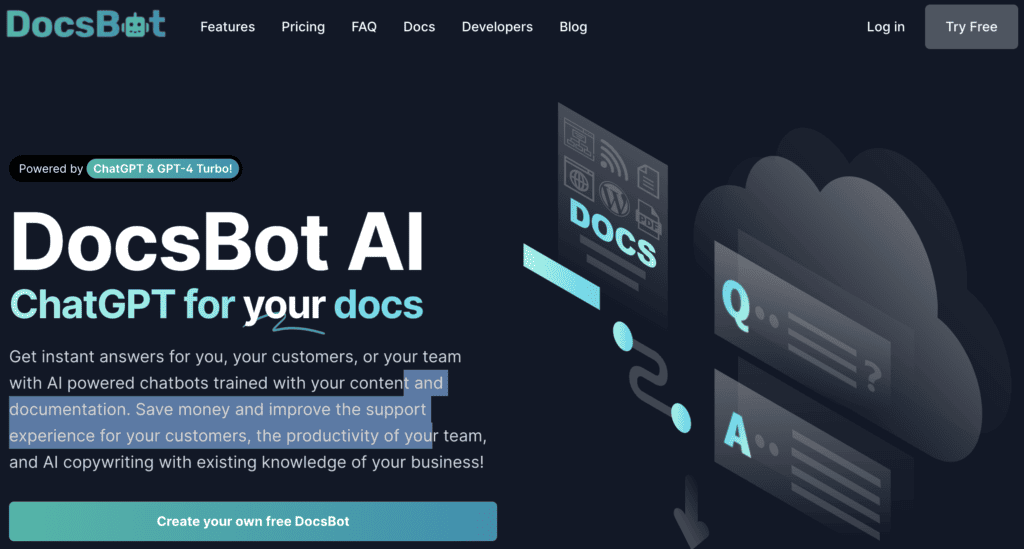
Written by Utkarsh Anand, a Personal Branding and Marketing Expert: Learn more
Are you an e-commerce business owner looking for an edge over your competition?
The e-commerce world is constantly evolving and the fusion of artificial intelligence (AI) brings a significant shift that offers new opportunities for growth and optimization.
I have been playing around with AI tools for many different purposes over the last couple of years.
And as I have started an e-commerce store, I have been trying to figure out ways to leverage AI tools to take my business to the next level.
Imagine a world where your online business understands and anticipates customer preferences, machine learning refines every interaction, and customer data becomes an ally in enhancing the online shopping experience.
AI can personalize the shopping experience, boost efficiency, enhance customer service, and protect your business.
In this article, I will show you exactly how you can use AI tools and plug them into your ecommerce startup to see some amazing results.
How Is AI Shaping the E-commerce Industry?
Today, AI technology has emerged as a game-changer, reshaping how businesses operate and customers engage with online platforms.
According to Zipdo, spending on AI in ecommerce businesses is expected to top 8 billion dollars in 2024!
The ecommerce industry is extremely competitive and business owners are always looking for ways to be better than their competition.
The usage of AI in ecommerce covers almost every aspect of an ecommerce business.
From personalized experiences to streamlined operations, AI’s influence is pervasive and transformative.
Best Ways to Use AI in E-commerce
AI can help you with many aspects of your e-commerce business.
This could include automating business processes, creating digital products, conducting research, etc.
Some of the key uses of artificial intelligence in ecommerce are as follows:
1. Inventory Management

AI is transforming e-commerce inventory management by leveraging diverse data sources.
Traditional methods often lead to overstocking or understocking, impacting profits and customer satisfaction.
AI analyzes customer purchase history, social media sentiment, weather data, and competitor pricing to provide accurate demand insights.
This optimizes inventory levels, reducing costs, enhancing customer satisfaction, and boosting sales.
While AI-powered inventory systems are evolving, they already show great potential for revolutionizing e-commerce management practices.
2. Product Research
The entire e-commerce landscape is extremely data-driven.
AI tools do a great job of making this vast sea of data more accessible for people like us.
You can use these tools to find trends you can benefit from.
Whether you want to start your own store or sell on a platform like Amazon or Etsy.
Utilizing AI’s data analysis capabilities enables businesses to uncover trends, predict demand, and identify lucrative niche markets.
By analyzing data from various sources, including social media and competitor websites, AI empowers businesses to optimize product selection, predict emerging trends, and tap into profitable, unsaturated markets.
Check out some of our favorite Amazon tools and Etsy tools to conduct your product research.
3. Chatbots for Customer Support

AI in e-commerce is transforming customer support through chatbots and natural language processing.
A custom AI assistant can help you answer customer queries quickly and enhance the overall experience of your customers.
By interpreting natural language, these virtual assistants offer immediate answers, handle FAQs, and collect valuable customer data.
Investing in chatbot technology creates a seamless and personalized customer journey.
There is a big industry shift towards embracing AI for enhanced customer interactions in e-commerce businesses and you should capitalize on this trend.
4. Optimizing Product Listings

Optimizing product listings is no longer just about SEO keywords and enticing descriptions; it goes way beyond this and taps into the power of natural language processing (NLP) and big data insights.
Imagine AI tools scouring vast customer reviews, pinpointing hidden trends, and crafting descriptions that resonate deeply with your target audience.
This isn’t just theoretical; it’s the reality of AI in e-commerce.
AI tools can analyze purchase history, predict buying behavior, and adjust titles and descriptions in real time to maximize click-through rates.
5. Creating Marketing Material
In the fast-paced world of e-commerce, integrating AI into your marketing strategy is like gaining a strategic edge.
With AI, you unlock personalized content, precise targeting, and real-time insights, leaving guesswork behind.
Imagine tailoring product descriptions, creating focused social media ads, and adjusting campaigns on the fly.
You can use AI image tools to enhance your product images, and AI writing tools to write better descriptions and make better ads.
This entirely changes the way we’ve been creating content for marketing our ecommerce businesses.
6. Automated Marketing Campaign
Imagine your online store humming with personalized campaigns that reach the right customers at the right time, all without you lifting a finger.
It sounds like a dream, right? Well, thanks to AI, it’s becoming a reality for e-commerce businesses of all sizes.
By leveraging AI’s ability to analyze customer data and predict behavior, e-commerce websites can automate personalized marketing campaigns that are far more effective than traditional methods.
This opens up a world of possibilities, from triggering abandoned cart emails to recommending relevant products based on past purchases.
The result? Increased customer engagement, higher conversion rates, and ultimately, boosted growth for your e-commerce business.
7. AI-Based Product Recommendation

According to Barilliance, product recommendations generate up to 31% of the revenue for ecommerce websites.
Ensuring that your customers have a much more intuitive buying experience on your website is bound to bring massive results.
Big players like Amazon and Etsy use it to increase sales.
Even individual ecommerce shop owners can use AI product recommendations on platforms like Shopify and Woocommerce.
8. Product Pricing Using AI
Pricing your product is crucial to the profitability of your business.
Often, people miss the mark on the pricing and either leave money on the table or overcharge and turn off buyers.
Finding the right price to charge for your product can be a difficult task and may require a ton of research.
Dynamic pricing tools powered by AI can help you set the pricing of your product based on the demand and seasons.
This can help you significantly increase your profits.
Conclusion
In this article, we have looked into some of the major shifts AI is causing in e-commerce.
Now, are you ready to join the AI revolution in e-commerce? Remember, AI isn’t about replacing the human touch; it’s about amplifying your strengths and unlocking hidden potential.
This is the to embrace these AI-powered strategies, experiment, and find ways to enhance your business processes.
Providing personalized experiences that keep customers coming back for more is extremely important in this day and age.
The future of e-commerce is bright, and with AI by your side, it’s yours to conquer!
Frequently Asked Questions
How is AI used in ecommerce?
AI can be used in ecommerce to improve almost every aspect of the business.
This includes things like product research, inventory management, marketing, customer care, and much more.
The possibilities of what you can do with AI for online shopping businesses are endless.
AI tools can help you build a much more efficient sales process and grow your revenue and sales.
How big is the AI e-commerce market?
According to precedence research, artificial intelligence in the E-commerce market globally will be valued at more than USD 5.81 billion in 2022.
Additionally, it is expected to be as big as USD 22.60 billion by 2032.
What are the challenges of AI in e-commerce?
Some of the biggest challenges for AI in e-commerce are:
- Data Quality and Quantity
- Data Privacy and Security
- Integration with Existing Systems
- Algorithm Bias





